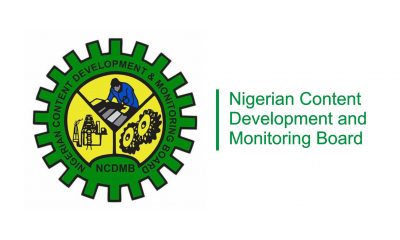News
PDP Urges Aggrieved Candidates To Go To Court
National Chairman of the Peoples Democratic Party, PDP, Alhaji Adamu Mu’azu yesterday met with all zonal national and state chairmen of the party, urging aggrieved candidates and members to seek redress in court over alleged manipulations and irregularities which characterised the March 28 and April 11 elections.
Rising from the meeting which took place yesterday in Abuja at the PDP National Secretariat, the PDP, however, vowed to resist what it termed undue harassments, witch-hunt and any form of intimidation or undemocratic tendencies from the All Progressives Congress, (APC) aimed at bringing down its members psychologically.
According to the leadership of the party, it would throw its weight behind any one who goes to court against the backdrop that the alleged anomalies witnessed during the elections in some states were to the disadvantage of the PDP, just as it described the defeat of the party’s Presidential candidate, President Goodluck Jonathan by the Presidential candidate of the All Progressives Congress, APC, General Muhammadu Buhari, as temporary which will not affect the party.
In a communiqué issued at the end of the PDP National Working Committee, (NWC), National Vice Chairmen and State Chairmen, the PDP cautioned the President- elect against any action or inaction that could threaten the gains of democracy and personal freedom that the party stressed it established in the last 16 years.
The communiqué, which was signed by Amb. Ibrahim Kazaure and Emmanuel Agbo for National vice chairmen and state chairmen respectively reads, “The National Working Committee (NWC), national vice chairmen and state chairmen of the PDP in the 36 states and the Federal Capital Territory (FCT) Abuja after a crucial meeting on Wednesday, April 22, 2015 at the National Secretariat Abuja resolved as follows:
“The meeting notes the outcome of the 2015 general elections and accordingly resolves not to allow the temporary setback affect the party’s contributions to the democratic development of the country.
“The meeting notes and appreciates the patriotic stand taken by President Goodluck Jonathan after the elections as another milestone in the party’s contributions to peace, stability and progress of the nation.
“The meeting, however, decries the widespread anomalies and irregularities that characterized the March 28 and April 11, 2015 elections in most states to the disadvantage of the PDP and resolve to give full backing to the various pursuits of redress in this regard within the ambit of the law and tenets of democracy.
“The meeting directs all PDP candidates who believe that they were shortchanged to channel their reports through their state chairmen.
“The meeting also resolved to resist undue harassments, witch-hunt and any form of intimidation or undemocratic tendencies from the opposition aimed at bringing down our members psychologically.
“ The meeting notes the subterranean moves by the APC to undermine the structures of the PDP across the country with the sinister motive of imposing a one-party state in the polity.
“The meeting strongly cautions the APC and their leader, Muhammadu Buhari against any action or inaction that could threaten or erode the gains of democracy and personal freedom that have been established by the PDP government in the last 16 years.
“ The meeting resolved to galvanize the structures of the party and give full support to PDP candidates in the supplementary governorship elections in Abia, Taraba and Imo states as well as resist any undemocratic plot to manipulate the process against our party.
“The meeting charges INEC and others stakeholders involved in the supplementary elections to be forthright, transparent and ensure that the will of the people in the affected states are not in any way subverted.
“The meeting resolves to give all necessary support to the national leadership of the party under the chairmanship of Ahmadu Adamu Mu’azu to enable them re-engineer and rebrand the party for the task of regaining power by 2019.
“In view of the above, the meeting charges all members of the party to continue to work harmoniously with their leaders at all levels especially at this critical time, while channeling any grievances to the appropriate organs in line with the provisions of the party’s constitution
“ The meeting condemns in its entirety the attitude of fair-weather and unprincipled members who are rushing to the APC. It notes that such members are saboteurs and moles who worked against the PDP in the general election.
“ The meeting salutes the courage and faith of committed and dedicated members even in the face of the setbacks and intimidations and assured them of adequate protection of their inalienable rights as citizens in a democracy.
“The meeting accordingly resolves to set up special committees on the repositioning of the party,” the PDP added.
News
Tinubu Appoints Four Nominees Into NCDMB Governing Council

President Bola Tinubu has approved the nomination of four new members to the Governing Council of the Nigerian Content Development and Monitoring Board (NCDMB).
The Special Adviser to the President on Information and Strategy, Bayo Onanuga, in a statement yesterday, said the appointment is to fill existing vacancies and strengthen the board’s capacity.
The statement said the approved nominees are Mr. Olusegun Omosehin of the National Insurance Commission and Engr. Wole Ogunsanya of the Petroleum Technology Association of Nigeria.
Tinubu also endorsed the nomination of Sam Onyechi, who represents the Nigerian Content Consultative Forum and Barrister Owei Oyanbo from the Ministry of Petroleum Resources.
The President encouraged the new members to leverage their expertise and dedication to enhance local content development within Nigeria’s oil and gas industry.
It added, “The nominations arose from the exit of previous institutional representatives from the Governing Council.
“The NCDMB Governing Council, established under Section 69 of the Nigerian Oil and Gas Industry Content Development Act, 2010, comprises representatives from key institutions.
“These include the Ministry of Petroleum Resources, the Nigerian Upstream Petroleum Regulatory Commission, the Nigerian National Petroleum Company Limited, the Petroleum Technology Association of Nigeria, the Council for the Regulation of Engineering in Nigeria, the Nigerian Content Consultative Forum, and the National Insurance Commission.”
News
NDDC To Construct Hostels, Roads In UNIPORT – Ogbuku

The Niger Delta Development Commission (NDDC) has announced plans to construct additional hostels, rehabilitate roads, and enhance power supply in the University of Port Harcourt (UNIPORT).
NDDC’s Managing Director, Dr Samuel Ogbuku, disclosed this during a visit to the commission’s headquarters in Port Harcourt, yesterday by a delegation from the UNIPORT’s Governing Council.
Ogbuku stated that the NDDC had committed to upgrading facilities at UNIPORT as part of efforts to foster partnership with educational institutions across the Niger Delta.
According to him, the implementation of additional projects at the university forms part of a broader strategy to improve education standards in the region.
“Aside from the construction of new hostel blocks and installation of a 300 KVA solar inverter system, the NDDC will also facilitate more projects in the university.
“The commission will also deploy its engineers to assess the condition of UNIPORT’s roads and hostels for potential rehabilitation,” he said.
Ogbuku noted that upon completion, the projects would add to various initiatives previously undertaken by the commission at the university.
“These and other projects reflect our commitment to actualising President Bola Tinubu’s Renewed Hope Agenda in the Niger Delta region,” he added.
He reaffirmed the NDDC’s dedication to fostering development and strengthening partnerships across the region.
Earlier, Sen. Mao Ohuanbunwa, Chairman of UNIPORT’s Governing Council, who led the delegation commended the current leadership of the NDDC for its achievements in accelerating development in the Niger Delta.
He highlighted the university’s infrastructural challenges, noting that it lacked adequate facilities to accommodate its growing student population, and appealed for the NDDC’s support in addressing the shortfall.
“Currently, UNIPORT has a total student population of about 50,000, while its hostel accommodation capacity can only cater for 5,000 students.
“We therefore urge the NDDC to assist in the construction of additional hostels, improve transportation facilities, and facilitate the acquisition of gas turbines to enhance power supply for our students,” Ohuanbunwa pleaded.
The Vice Chancellor of UNIPORT, Prof. Owunari Georgewill, commended NDDC for its impactful projects across the Niger Delta and extended an invitation to the commission to participate in the institution’s forthcoming 50th anniversary celebrations.
News
Senate Rejects Motion To Rename INEC Headquarters After Humphrey Nwosu

The Senate has rejected a motion to rename the Independent National Electoral Commission (INEC) headquarters after the former chairman of the defunct National Electoral Commission, late Prof Humphrey Nwosu.
Nwosu presided over the June 12, 1993, presidential election, which was truncated by the former military President, General Ibrahim Babangida (rtd).
The election which was won by the late business mogul, Chief MKO Abiola, was adjudged to be the freest and fairest in the electoral history of Nigeria.
The motion to rename INEC after Nwosu was re-sponsored by Senator Enyinnaya Abaribe yesterday after lawmakers threw it out last Wednesday.
Abaribe called for posthumous national honours to be conferred on Nwosu in recognition of his role in Nigeria’s democratic evolution.
However, the proposal sparked a heated debate once again, with lawmakers deeply divided over Nwosu’s legacy.
Senator Osita Ngwu acknowledged that Nwosu operated under a military regime, which restricted his ability to announce the results.
He argued that “there was no way he would have announced the results with a gun to his head. That doesn’t change the fact that some of us see him as a hero.”
Senator Austin Akobundu, however, described it as most uncharitable for lawmakers to dismiss Nwosu’s contributions, insisting that he deserved a place in Nigeria’s hall of honour.
On the other hand, several senators like Senator Jimoh Ibrahim dismissed the idea outright, questioning why the Senate should honour someone who failed to announce the results insisting that “nothing should be named after him”.
Senator Cyril Fasuyi argued that history does not reward efforts, but only results.
“As long as he did not announce the result, whether under duress or not, I am against naming INEC headquarters after him,” he submitted.
Also, Senator Sunday Karimi criticised Nwosu for lacking the courage to speak out, while Senator Afolabi Salisu warned that immortalising him would undermine the memory of MKO Abiola, the widely accepted winner of the June 12, 1993, annulled election.
“Any attempt to do anything beyond a one-minute silence is to rubbish Abiola’s legacy,” he tendered.
After intense deliberation, most senators rejected the motion through a voice vote.
They, however, agreed to honour him with a one-minute silence and extend condolences to his family, effectively dismissing the other prayers to immortalise Nwosu.
-
News4 days ago
TETFund To Set Up 72 Specialised ICT Centres
-

 Editorial4 days ago
Editorial4 days agoNAFDAC’s Destruction Of Counterfeit Drugs
-

 News4 days ago
News4 days agoTinubu Appoints Four Nominees Into NCDMB Governing Council
-
Business4 days ago
Rivers Host First Modular LPG Plants … As FG Commissions Project
-

 Rivers4 days ago
Rivers4 days agoSEEPCO’s Drives To Commitment of Safeguarding The Survival Of Tree Plantations In Nigeria
-
Opinion4 days ago
Addressing Nigeria’s Social Ills Through Cultural Education
-
News4 days ago
New Constitution: Anyaoku, Osoba, Yakasai To Meet N’Assembly In April
-
Sports4 days ago
Chelsea Fans Want Co-Owner Investigated

